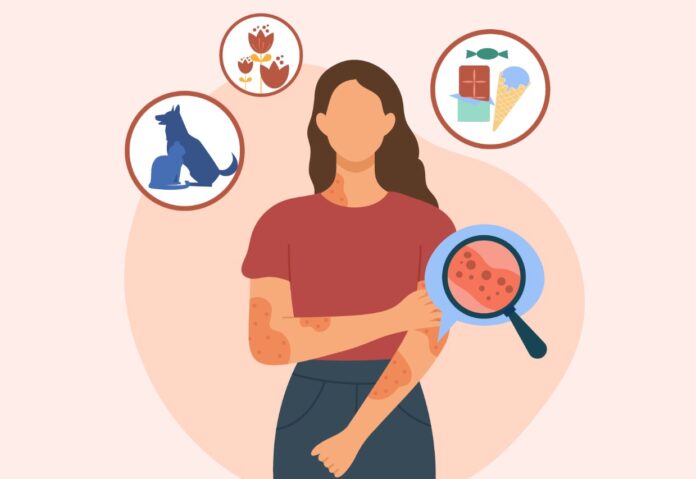Have you ever had a sneezing or coughing fit and wondered what caused it? It could be the result of an allergic reaction. Allergies are the body’s response to something it perceives as foreign, usually called an allergen.
In this article, we will explore the various causes of allergic reactions, and how to identify and manage them. We will also discuss how to reduce exposure to allergens in order to prevent or lessen an allergic reaction.
Causes of Allergic Reactions
Allergies are usually caused by an over-reaction of the body’s immune system. Here are some common allergens that can cause an allergic reaction:
- Pollen– Pollen is a powdery substance released by plants. It can trigger allergies, especially during spring and summer when it’s in abundance in the air. Most commonly this causes allergies such as hay fever, but can also cause sinusitis and asthma.
- Dust mites– Dust mites are microscopic organisms found in dust. They feed off organic material such as skin cells or pet dander. Allergies to dust mites include sneezing, congestion, and itchy eyes.
- Pet dander- Pet allergies are caused by proteins secreted from their skin and saliva. People who have allergies to cats or dogs may experience sneezing, coughing, watery eyes, and a runny nose.
- Food allergies– Food allergies occur when the body’s immune system recognizes a protein in certain foods as harmful, triggering an allergic reaction. Common food allergies include allergies to peanuts, tree nuts, dairy, and eggs.
- Other allergies– Other causes of allergies can range from bee stings, mold spores, and medications to latex and even contact with certain fabrics or chemicals.
Symptoms of Allergic Reactions
There are many symptoms associated with an allergic reaction. These can include:
- Sneezing, coughing and a runny nose
- Itchy eyes, throat and skin
- Swelling of the face or other areas of the body
- Hives or eczema
- Wheezing or difficulty breathing
Once you identify the symptoms of an allergic reaction, you should take steps to prevent or treat it.
Treatment & Prevention of Allergic Reactions
Now that we’ve discussed the causes and symptoms of allergies, let’s explore some treatments and prevention methods.
If you think you’re having an allergic reaction, try using an over-the-counter antihistamine to reduce inflammation or itching. If the allergies persist, it is recommended to visit a doctor for further treatment.
To prevent allergies, there are a few steps you can take:
- Avoid contact with your allergy triggers (such as pollen, pet dander, and certain foods).
- Wear protective clothing such as gloves when gardening or handling pets.
- Keep windows closed to reduce the amount of outside allergens that can enter your home.
- Vacuum and dust regularly to remove allergens from the air.
Now that you know the causes and treatments of allergies, you can take steps to prevent and manage them. If you think you may be suffering from an allergic reaction, it is important to seek medical advice as soon as possible. You also have the option to take natural remedies.
Benefits of Taking Medications vs Natural Remedies
While medications can be effective in allergies treatment, it is important to note that they may also have some side effects. These can include drowsiness, dry mouth, and blurred vision.
An alternative to medications is natural remedies. Natural remedies for allergies include drinking herbal teas or taking supplements such as vitamin C, quercetin, or nettle extract. These options are usually safe and may help reduce the severity of an allergic reaction. However, it is important to research any natural remedy before trying it out, as it could interact with other medications you may be taking.
There are also lifestyle changes that can help prevent allergies, such as avoiding triggers and using air purifiers to reduce allergens in the air.
These are just some of the ways to prevent and manage allergies. It’s best to find what works for you and contact your doctor if symptoms persist or worsen. Remember, an ounce of prevention is worth a pound of cure!






